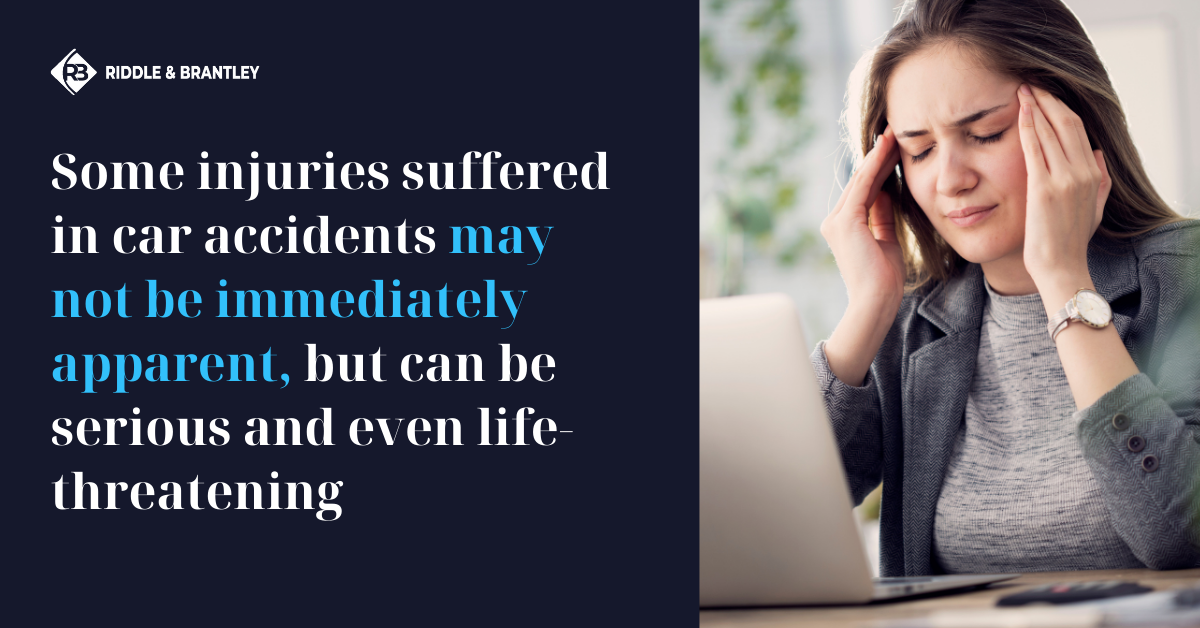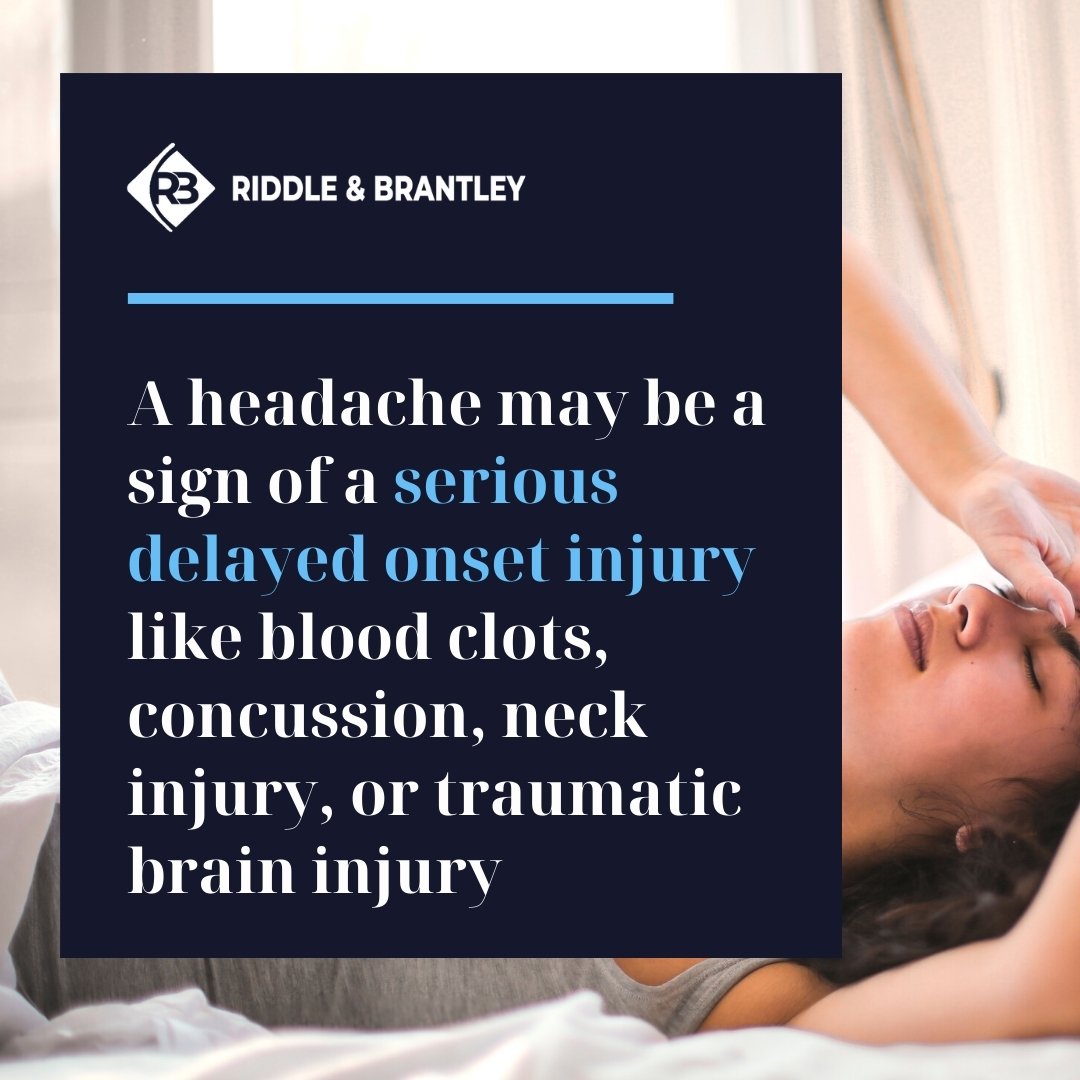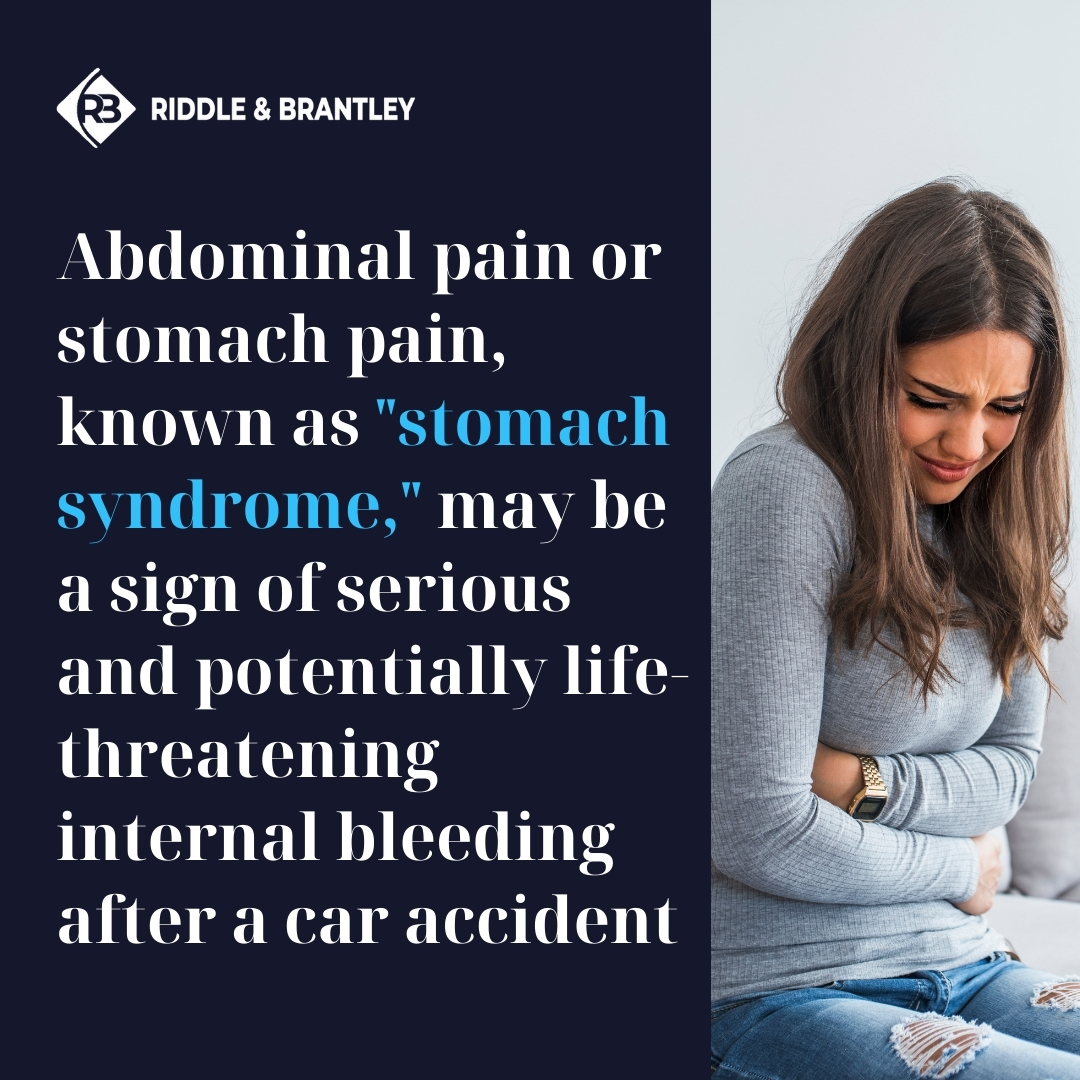What Are Symptoms of Delayed Onset Injury in Car Accidents?
After a car accident, you may be injured even though you feel fine. These “delayed injuries” or “delayed onset injuries” can be extremely dangerous. This is why it’s important to seek medical treatment immediately after a car accident, and to follow the recommendations of first responders on the scene.
In this article, we’ll outline some of the symptoms of delayed onset injury in a car accident. We’ll also share tips on how to stay safe and protect your rights if you’ve been injured in a car, truck, or other motor vehicle accident.
 IMPORTANT: Even if you do not experience pain immediately and you feel fine, you may have still suffered a “delayed onset” injury in a car accident. If you’ve been involved in a car accident, seek medical attention and follow the recommendations of first responders at the scene.
IMPORTANT: Even if you do not experience pain immediately and you feel fine, you may have still suffered a “delayed onset” injury in a car accident. If you’ve been involved in a car accident, seek medical attention and follow the recommendations of first responders at the scene.
Symptoms of Delayed Onset Injury After a Car Accident
If you’ve been involved in a North Carolina car accident, pay attention to these symptoms of potential delayed onset injuries:
Headache
In the hours or days following a car accident, you may experience a headache. In most cases, headaches are temporary and will often go away on their own. However, after a car accident, a headache may be a sign of a more serious injury.
A headache after a car accident may be a sign of serious delayed injury such as:
- Blood clots
- Head injury
- Neck injury
- Concussion
- Traumatic brain injury (TBI)
 Headaches are a common indicator of brain injuries, in particular. Brain injuries can be life-threatening. If you experience a headache after a car accident, be sure to seek medical attention immediately.
Headaches are a common indicator of brain injuries, in particular. Brain injuries can be life-threatening. If you experience a headache after a car accident, be sure to seek medical attention immediately.
Neck or Shoulder Pain
Although you may not experience it right away, it is not uncommon to feel neck or shoulder pain in the hours or days after a car, truck, or other auto accident.
Neck or shoulder pain can be a sign of whiplash, which is a common injury occurring when the head and neck are thrown back and forth violently during a car accident. Most whiplash injuries are relatively minor and will go away over time, though sometimes physical rehabilitation is needed.
In other cases, neck and shoulder pain may be a sign of spinal cord injury, which can be serious and even life-threatening.
If you experience neck or shoulder pain after a car accident — even if you don’t feel it until hours or days later — talk with a doctor immediately. An x-ray or MRI may be needed to diagnose the problem.
Back Pain
Similar to neck and shoulder pain, you may not experience back pain until hours or even days after the car accident. Back pain may be temporary and relatively harmless, or it may be a symptom of a more serious delayed onset injury from a car accident.
Back pain after a car accident may be a symptom of:
- Disc herniation
- Soft tissue injury
- Sprain
- Whiplash
You may also experience numbness or tingling in your back. This may be a sign of a pinched nerve.
If you’ve experienced back pain after a car accident, it may be a sign of a more serious delayed injury. Be sure to seek medical attention immediately.
Numbness
Numbness and tingling may not be immediately noticed, but can be experienced hours or even days after a car accident. These symptoms may be related to a delayed onset injury such as:
- Whiplash
- Neck or back injury
- Spinal cord injury
- Disc herniation
- Head trauma
- Muscle spasms
Potential delayed injuries associated with numbness and tingling can range from minor to life-threatening, and it is important to seek medical treatment immediately.
Abdominal Pain
 Blunt force trauma in a car accident can cause serious and life-threatening injury to internal organs and cause internal bleeding. These injuries are common but are not always discovered right away.
Blunt force trauma in a car accident can cause serious and life-threatening injury to internal organs and cause internal bleeding. These injuries are common but are not always discovered right away.
If you experience abdominal pain after a car accident — even hours or days later — seek medical attention immediately.
Abdominal pain or stomach pain after a car accident is often called “seatbelt syndrome,” in reference to the tremendous amounts of force a seatbelt can place on the body and internal organs. This force can result in serious injury and internal bleeding, which can be serious and even deadly.
Symptoms of internal bleeding include:
- Abdominal or stomach pain
- Low blood pressure
- Shortness of breath
- Vision loss
- Dizziness
- Blood in the stool or urine
PTSD
Physical injuries aren’t the only consequence of car accidents. Emotional injury like post-traumatic stress disorder (PTSD) is common, as well. The U.S. Department of Veterans Affairs estimates that 9 percent of car accident survivors develop PTSD.
Symptoms of PTSD often do not appear until days, weeks, or even months after a car accident, however.
Symptoms of PTSD include:
- Agitation
- Irritability
- Self-destructive behavior
- Flashbacks
- Severe anxiety
- Mistrust
- Insomnia
- Nightmares
- Emotional detachment
- Unwanted thoughts
PTSD can be difficult to diagnose. If you or a loved one have experienced any of these symptoms of PTSD after a car accident, contact your doctor immediately.
Are You Suffering a Delayed Onset Injury from a Car Accident?
If you’ve been in a car accident, you may not experience symptoms of injury until hours, days, or even weeks after the accident.
If you suffered injuries in a North Carolina car accident due to someone else’s negligence, you deserve justice and you may be entitled to compensation.
There is no obligation and we don’t get paid unless you do. There are no attorney fees unless we recover compensation for you.
Justice Counts for those injured in auto accidents due to others’ negligence and we would love to help you if we can.
REMEMBER: Not all injuries are immediately apparent after a car accident. Pay attention to your symptoms and be sure to seek medical attention immediately after any signs of delayed onset injury.